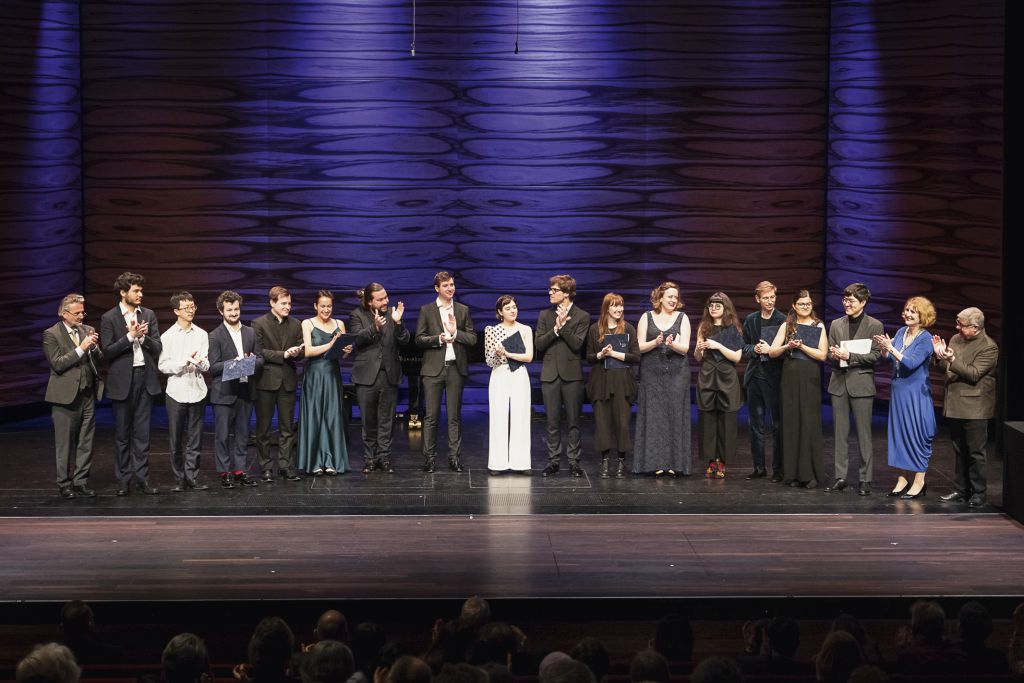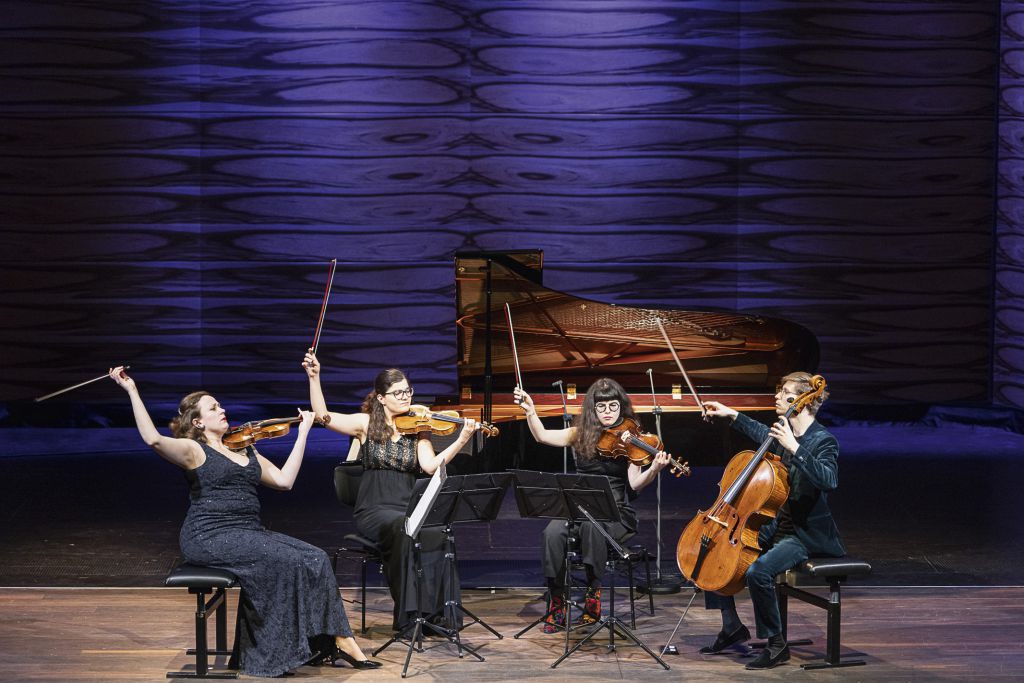2023 saw young musicians from all over the world converge on Vienna once more to prove their talent at the International Joseph Haydn Chamber Music Competition, which took place for the eighth time. This renowned event is put on every four years by the mdw and its Joseph Haydn Department of Chamber Music and Contemporary Music. With the online preliminary round already having been held last autumn, the semifinals and finals in the mdw’s Joseph Haydn-Saal and the brilliant prizewinners’ concert at the Viennese concert venue MuTh went forward this past spring.
A total of four string quartets (Artel Quartet, Chaos String Quartet, Javus Quartet, and Quatuor Magenta) as well as altogether six piano trios (Trio Bohémo, Trio Chagall, Heathcliff Trio, Trio Incendio, Trio Pantoum, and Soleri Trio) qualified for the semifinal round. As this competition’s name suggests, works by Joseph Haydn are given special emphasis. Carrying off a skilful interpretation of these is particularly challenging and essential in order to win over the jury of international experts. This time around, the jury was chaired by the mdw chamber music professor Avedis Kouyoumdjian.

Alongside Haydn interpretation, the competition’s focus also extends to chamber music repertoire from Viennese Classicism and the Second Viennese School. 2023’s broad and challenging programme ranged from compositions by Wolfgang Amadeus Mozart to works by Ludwig van Beethoven, Franz Schubert, and Robert Schumann as well as the output of later figures such as Dimitri Shostakovich and Béla Bartók. Another special Haydn Competition feature is the world première of a commissioned work in each category. These works are created as part of a composing competition held expressly for the Joseph Haydn Department by the mdw’s Department of Composition, Electroacoustics and Tonmeister Education in the interest of including contemporary competitions in the Haydn Competition’s focus. In the piano trio category, Noemi Haffner prevailed with her piece Lichter und Farben. Among the newly composed string quartets, Linienfärbung II by Ingi Kim was chosen for recognition. Both compositions were performed by the Haydn Competition participants as compulsory works in its second round and have also been published by Musikverlag Doblinger.

Trio Bohémo from the Czech Republic and Trio Pantoum, which was founded at the Conservatoire de Paris, ultimately won over the jury in the piano trio category. Both ensembles were awarded first prizes. Trio Incendio, founded in Prague back in 2015 and currently a member of the European Chamber Music Academy (ECMA), received the second prize. In the string quartet category, where no first or third prizes were awarded, it was the Chaos String Quartet—hailing from Hungary, Germany, Italy, and the Netherlands and currently working on the ECMAster programme at the mdw—that won the second prize. Furthermore, the Special Prize for the Best Interpretation of a Work by Joseph Haydn went to Trio Bohémo, the Special Prize for the Best Interpretation of the Commissioned Work went to Trio Incendio and the Chaos String Quartet, and the Special Prize for the Best Interpretation of a 20th- or 21st-Century Work likewise went to the Chaos String Quartet. What’s more, Trio Bohémo and the Chaos String Quartet both received Audience Prizes.
This time around, as well, the Joseph Haydn Competition demonstrated how it has developed into one of the most important formats for the young international chamber music scene. In this spirit, planning for its next edition has already begun.
Weitere Informationen
- Website of the International Joseph Haydn Chamber Music Competition
- The competition can be accessed at the mdwMediathek

